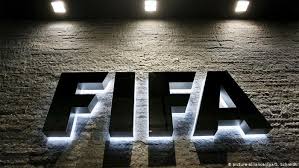May 29 – In an unusual statement on Tuesday, FIFA reaffirmed their relationship with the European Club Association (ECA) downplaying a meeting with the Union of European Clubs (UEC).
In the statement, FIFA said that it did not recognise the UEC, an organisation that wants to protect and promote the interests of small and medium-sized clubs across the continent, as a club football representative. UEC has more than 140 members, including clubs from top-flight leagues.
Instead FIFA said it only recognised the ECA as club football’s stakeholding body at the FIFA table.
It was the kind of positioning that led to the creation of the UEC in the first instance who felt that the ECA, formed out of the old G14 of leading clubs, was still only a representative of Europe’s biggest clubs and didn’t have their own interests and issues at heart.
There is also concern among the UEC clubs that the ECA is dominated by its biggest clubs and increasingly state-owned clubs like PSG and Manchester City. Certainly FIFA president Gianni Infantino’s own very close relationship with Qatar and the middle east inevitably raises questions over the abrupt refusal of FIFA to recognise the UEC – despite the meeting that took place – and whether there was pressure brought to bear to issue that statement.
UEC representatives met with FIFA over what for them is a major issue, the failure to distribute up to £140 million of payments in development fees still due from player transfers. Many of the clubs in the UEC group need the money stuck in the Clearing House to run daily operations.
“FIFA wishes to clarify the context and substance of a ‘meeting’ between FIFA staff members and individuals from the Union of European Clubs (UEC) last week. This exchange was in no way a formal engagement of any official standing, and rather was one of circumstance to address general questions regarding the operations of the FIFA Clearing House. FIFA regrets and rejects any indication that it was anything otherwise,” said the FIFA statement.
“FIFA would like to take this opportunity to state for the record that it recognises only one single interlocutor and counterpart representative body for club football in Europe, that being the European Club Association. FIFA will continue to collaborate closely with our counterparts at ECA to ensure that the views and feedback of the clubs are properly taken into account in order to continue to improve the efficiency of the operation and implementation of the FIFA Clearing House.”
The statement is a remarkable reconfirmation of FIFA’s relationship with ECA, but also points to where the power balance lies in European football. Following the Super League debacle and the establishment of the UEC, ECA has expanded its membership, but often those new members do not have full voting rights.
It appears that it also has muscle to flex within the world governing body. Perhaps not surprisingly so with Infantino’s unwaivering eagerness to establish the expanded Club World Cup as a major event in the international calendar, despite the opposition and legal threats of the players’ union Fifpro and the World Leagues Association.
FIFA is perhaps not in the dominant position in terms of its obsessive control of the game that it thought it was. FIFA needs the clubs for its club world cup, and it needs their players for its cash-cow World Cup. Without either FIFA’s relevance would diminish rapidly.
Contact the writer of this story at moc.l1745754488labto1745754488ofdlr1745754488owedi1745754488sni@i1745754488tnuk.1745754488ardni1745754488mas1745754488

